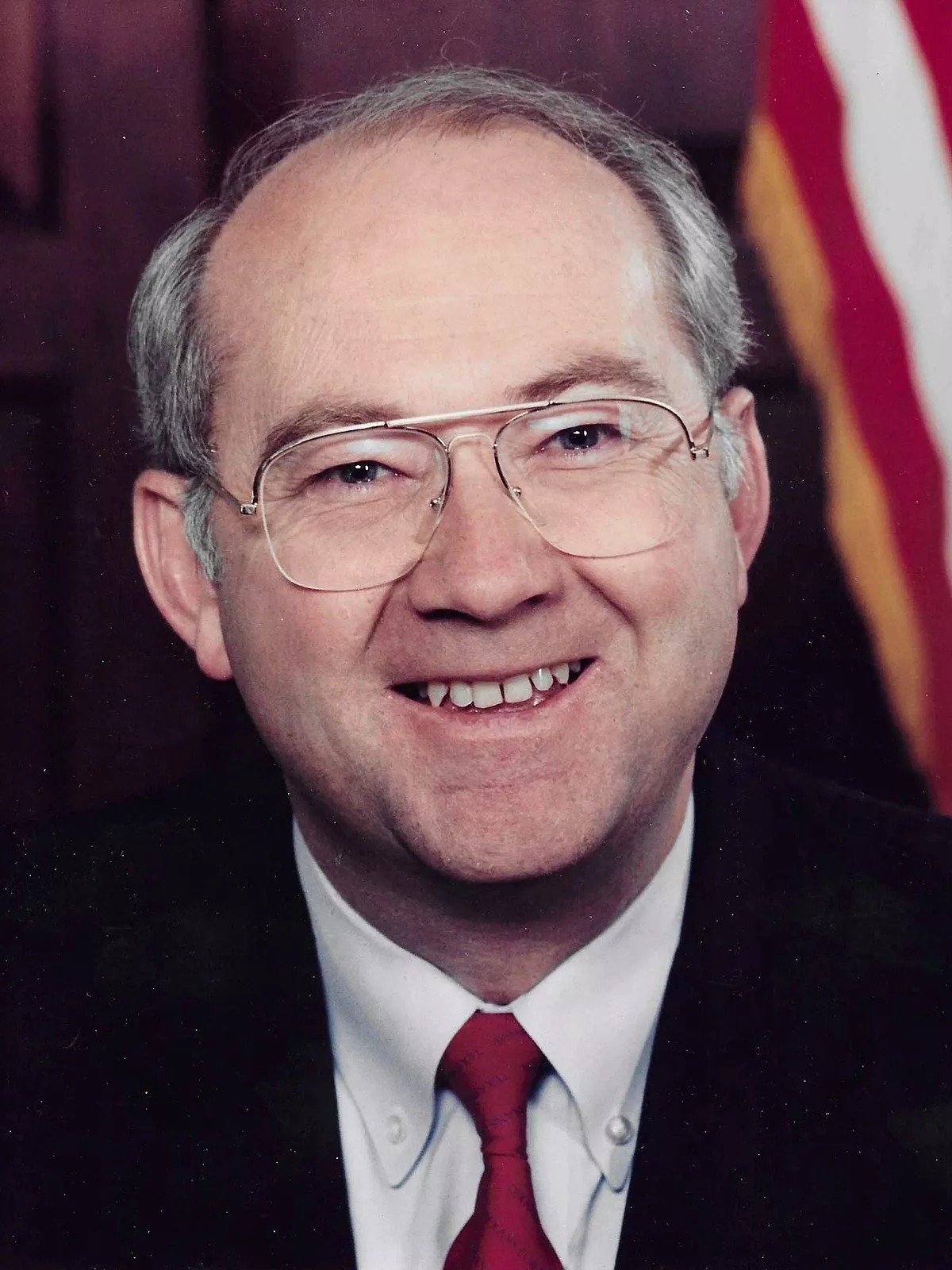 1.
1. William Philip Gramm was born on July 8,1942 and is an American economist and politician who represented Texas in both chambers of Congress.

 1.
1. William Philip Gramm was born on July 8,1942 and is an American economist and politician who represented Texas in both chambers of Congress.
Phil Gramm was an unsuccessful candidate in the 1996 Republican Party presidential primaries against eventual nominee Bob Dole.
Phil Gramm was born on July 8,1942, in Fort Benning, Georgia, and grew up in nearby Columbus.
Phil Gramm attended public schools, graduated in 1961 from Georgia Military Academy, and graduated in 1964 from the University of Georgia, where he was a member of the Phi Kappa Literary Society.
Phil Gramm received a doctorate in economics from the University of Georgia's Terry College of Business in 1967.
In 1976, Phil Gramm unsuccessfully challenged Texas Democratic Senator Lloyd Bentsen, in the party's senatorial primary.
Phil Gramm was reelected to his House seat as a Democrat in 1980.
Just days after being reelected in 1982, Phil Gramm was thrown off the House Budget Committee.
Phil Gramm then ran as a Republican for his own vacancy in a February 12,1983 special election, and won easily.
Phil Gramm became the first Republican to represent the district since its creation in 1846.
In 1984, Phil Gramm was elected as a Republican to represent Texas in the US Senate.
Phil Gramm defeated Congressman Ron Paul, former gubernatorial nominee Henry Grover, Robert Mosbacher, Jr.
Phil Gramm then faced the Democratic nominee, State Senator Lloyd Doggett of Austin in the general election for the right to succeed retiring Republican Senator John G Tower.
Phil Gramm polled 3,116,348 votes to Doggett's 2,207,557.
Phil Gramm was the first US Senate candidate in the history of Texas to receive more than three million votes.
Phil Gramm served on the Senate Budget Committee from 1989 until leaving office in 2002.
In 1990, Phil Gramm failed in an effort to amend the Iraq International Law Compliance Act of 1990.
Phil Gramm won his second Senate term in 1990 with a victory over Democratic State Senator and former Fort Worth Mayor Hugh Parmer.
Phil Gramm polled 3,027,680 votes to Parmer's 1,429,986, again receiving more than three million votes.
Between 1999 and 2001, Phil Gramm was the chairman of the US Senate Committee on Banking, Housing, and Urban Affairs.
Phil Gramm employed his "Dickey Flatt Test" to determine if federal programs were worthwhile.
In spite of his self-proclaimed opposition to Federal spending, Phil Gramm voted to have the Federal Government build the Superconducting Super Collider in his state, which would have cost billions of dollars of taxpayer money.
Phil Gramm ran unsuccessfully for the Republican Party nomination in the 1996 presidential election, for which he had raised $8 million as early as July 1994.
Phil Gramm threw his support to a senatorial colleague Robert J Dole of Kansas.
Phil Gramm, a proponent of free trade, lashed out at Buchanan, arguing that Buchanan was a "protectionist".
Phil Gramm defeated Victor Morales of Dallas in November 1996 to win what would be his final term in the Senate.
Phil Gramm was one of five co-sponsors of the Commodity Futures Modernization Act of 2000.
Wendy Phil Gramm was an Enron Board member and her husband was the second-largest recipient of campaign contributions from Enron, succeeded in legislating California's energy commodity trading deregulation.
In 2002, Phil Gramm left his Senate seat a few weeks before the expiration of his term in hopes that his successor, fellow Republican John Cornyn, could gain seniority over other newly elected senators.
Phil Gramm responded in March 2008 to criticism of the act by stating that he saw "no evidence whatsoever" that the sub-prime mortgage crisis was caused in any way "by allowing banks and securities companies and insurance companies to compete against each other".
Phil Gramm's support was later critical in the passage of the Commodity Futures Modernization Act of 2000, which kept derivatives transactions, including those involving credit default swaps, free of government regulation.
Phil Gramm was co-chair of John McCain's presidential campaign and his most senior economic adviser from the summer of 2007 until July 18,2008.
On July 18,2008, Phil Gramm stepped down from his position with the McCain campaign.
Phil Gramm said of Donald Trump, "I'll have to admit I don't find Trump much more reassuring" than Hillary Clinton or Bernie Sanders "in terms of economic policy", but did not believe Trump would be the nominee.
Phil Gramm is married to Wendy Lee Gramm, a native of Hawaii, who is associated with George Mason University's Mercatus Center in Virginia.